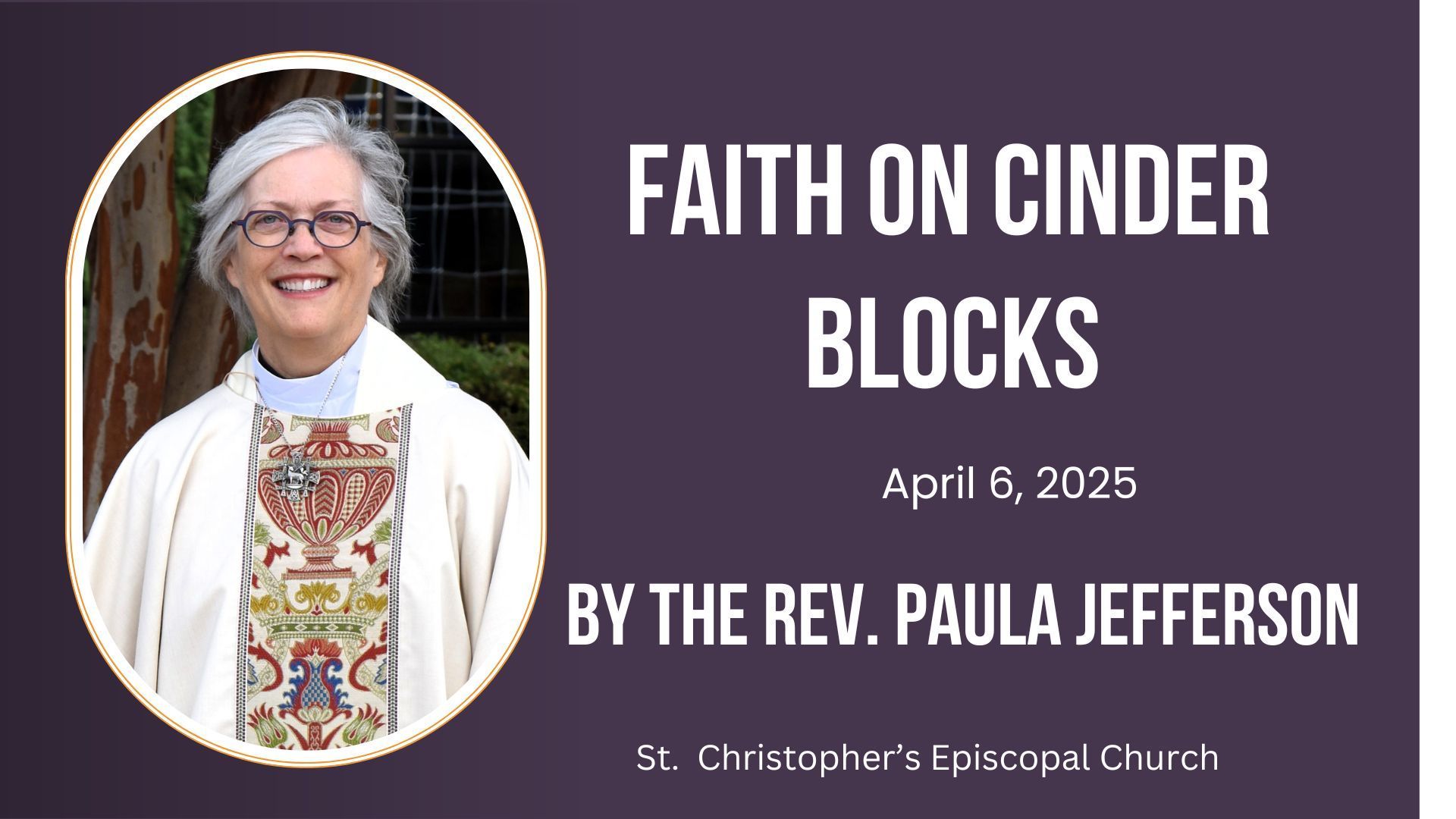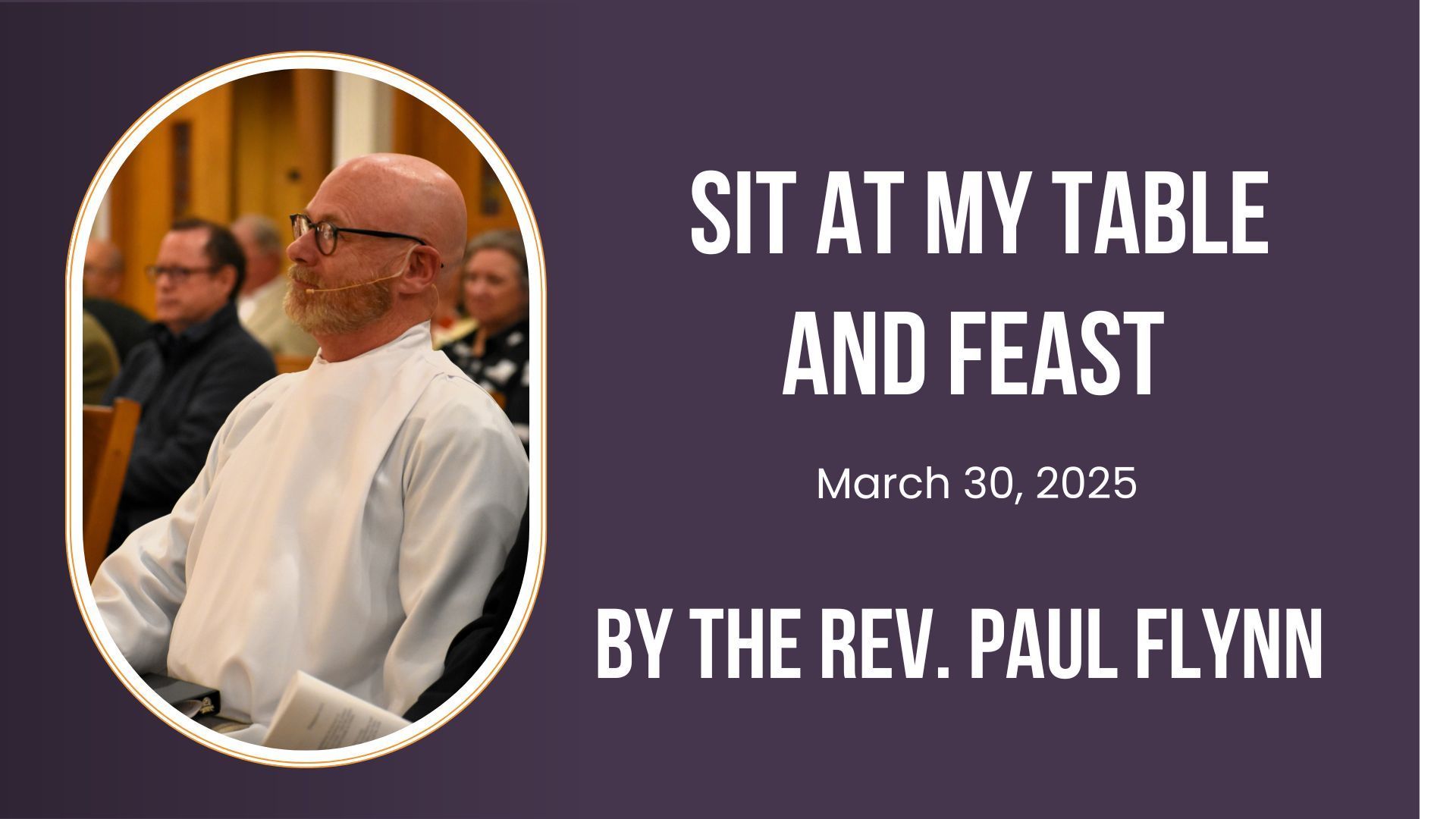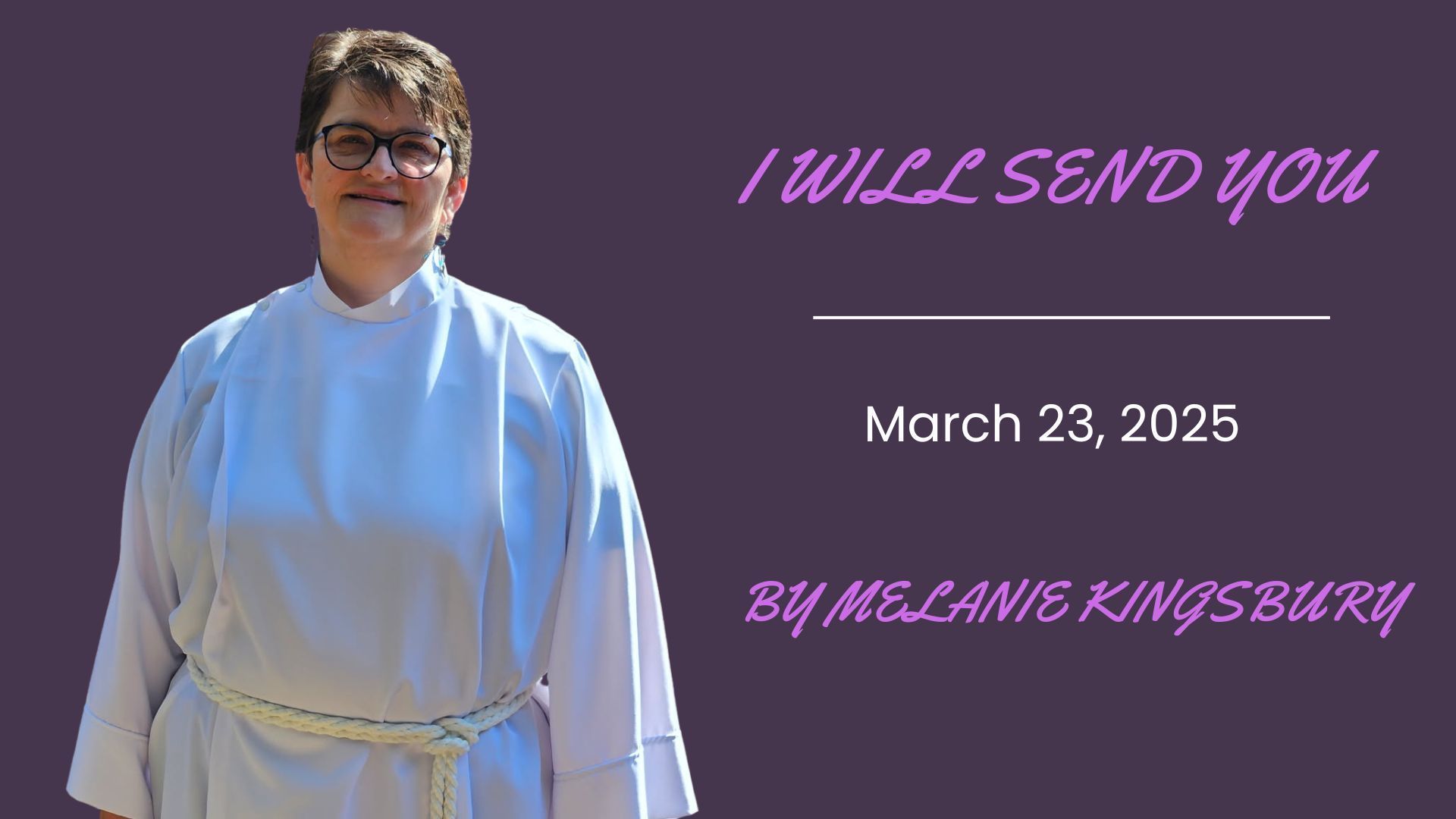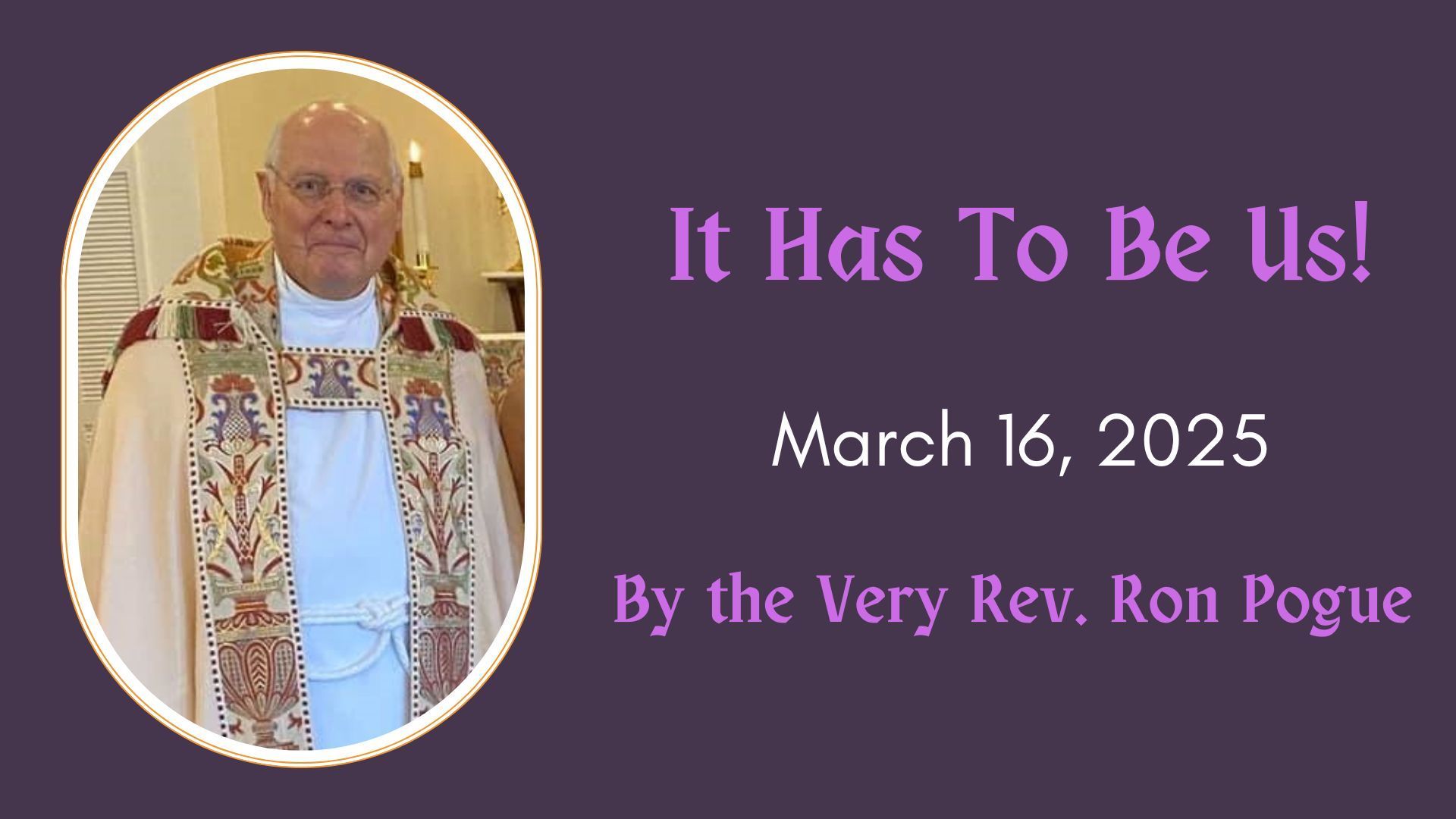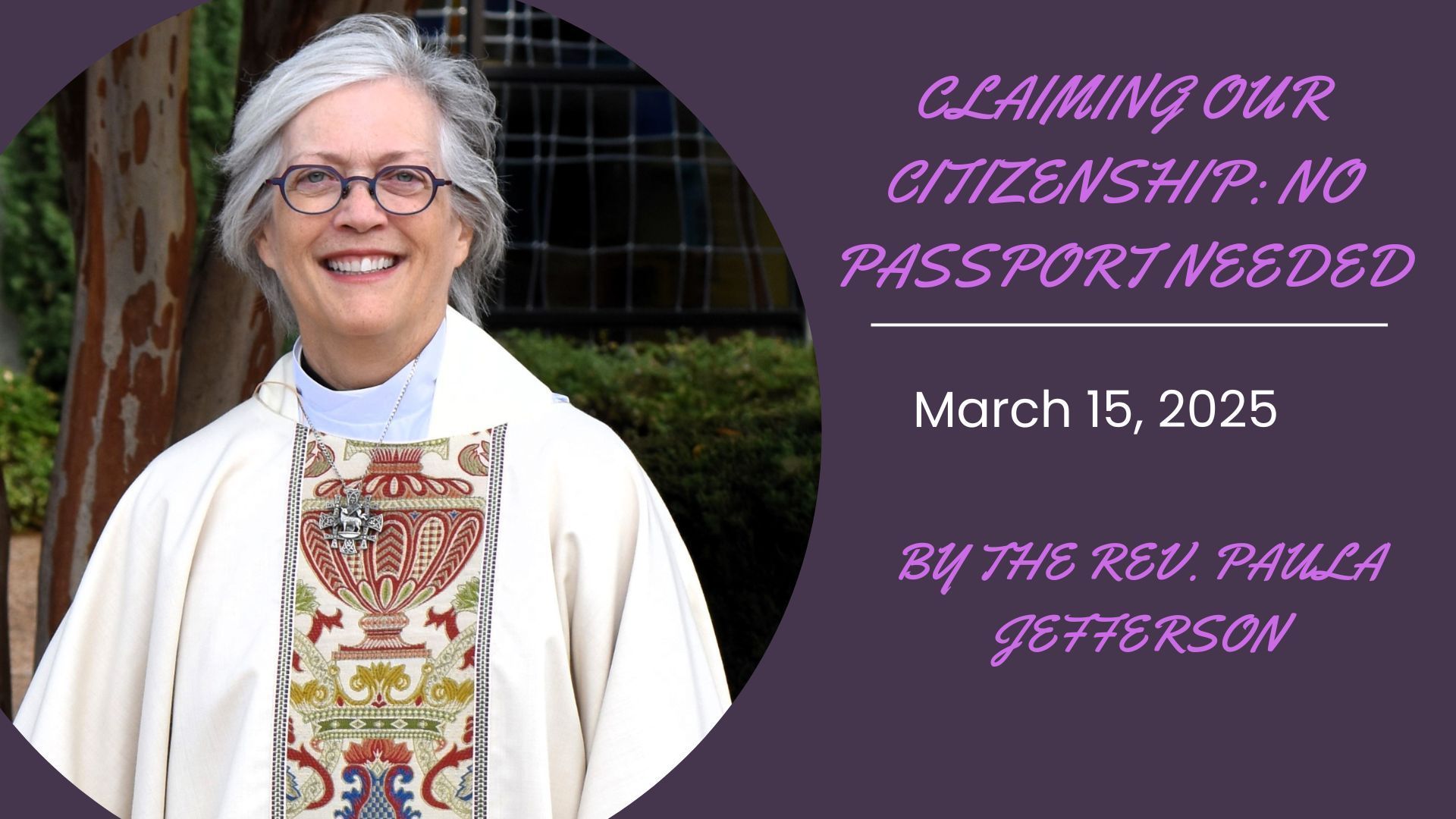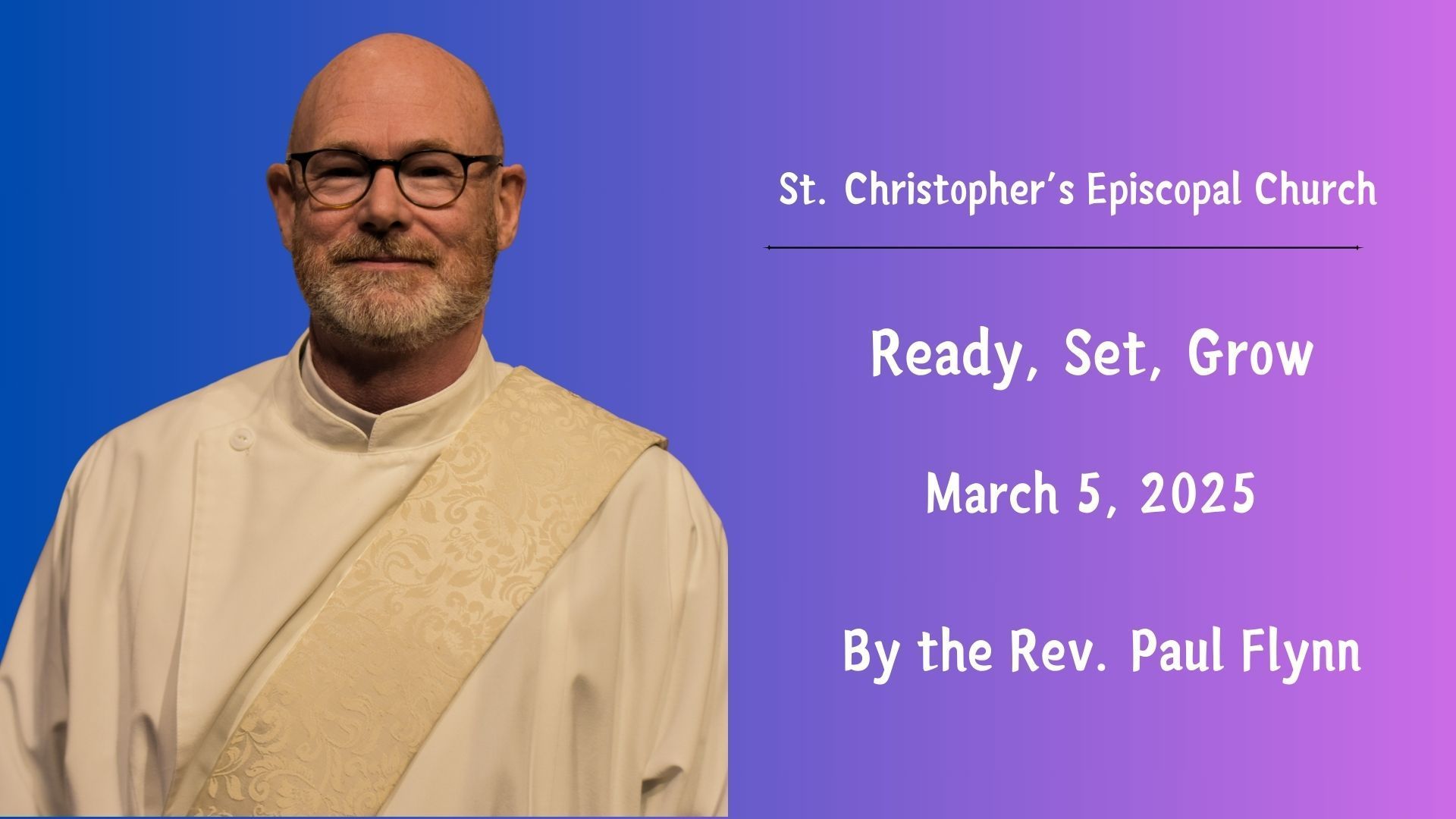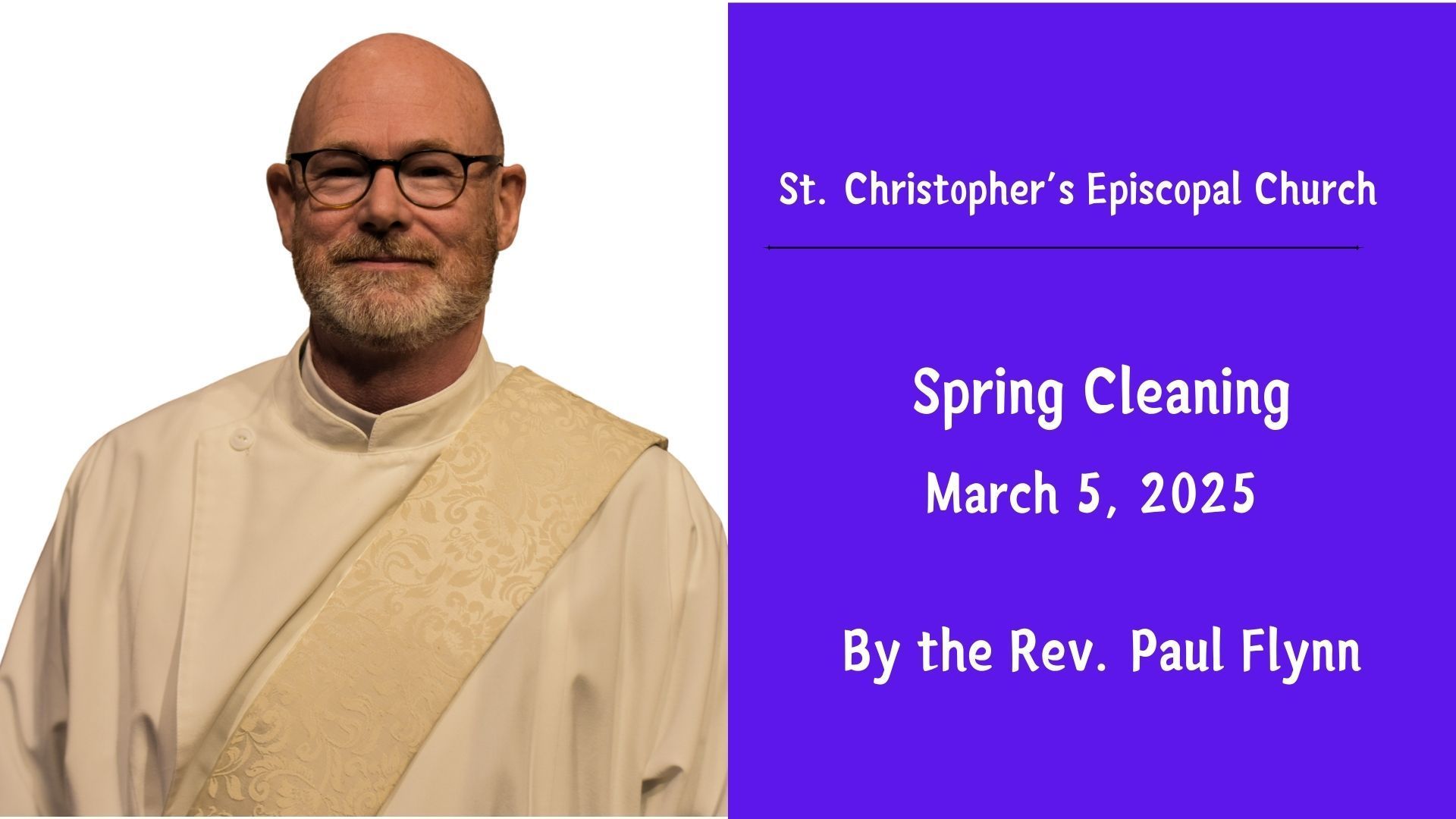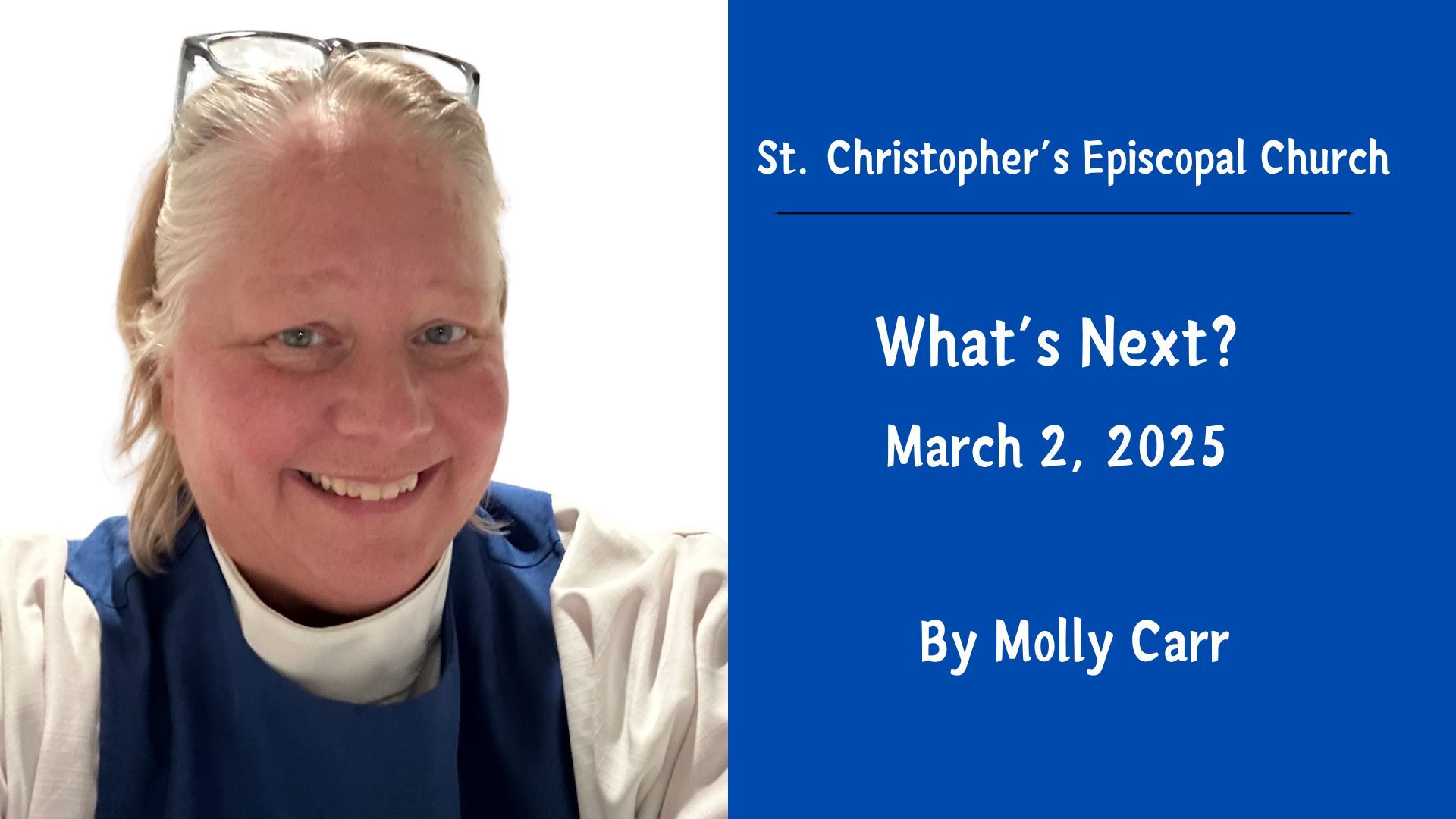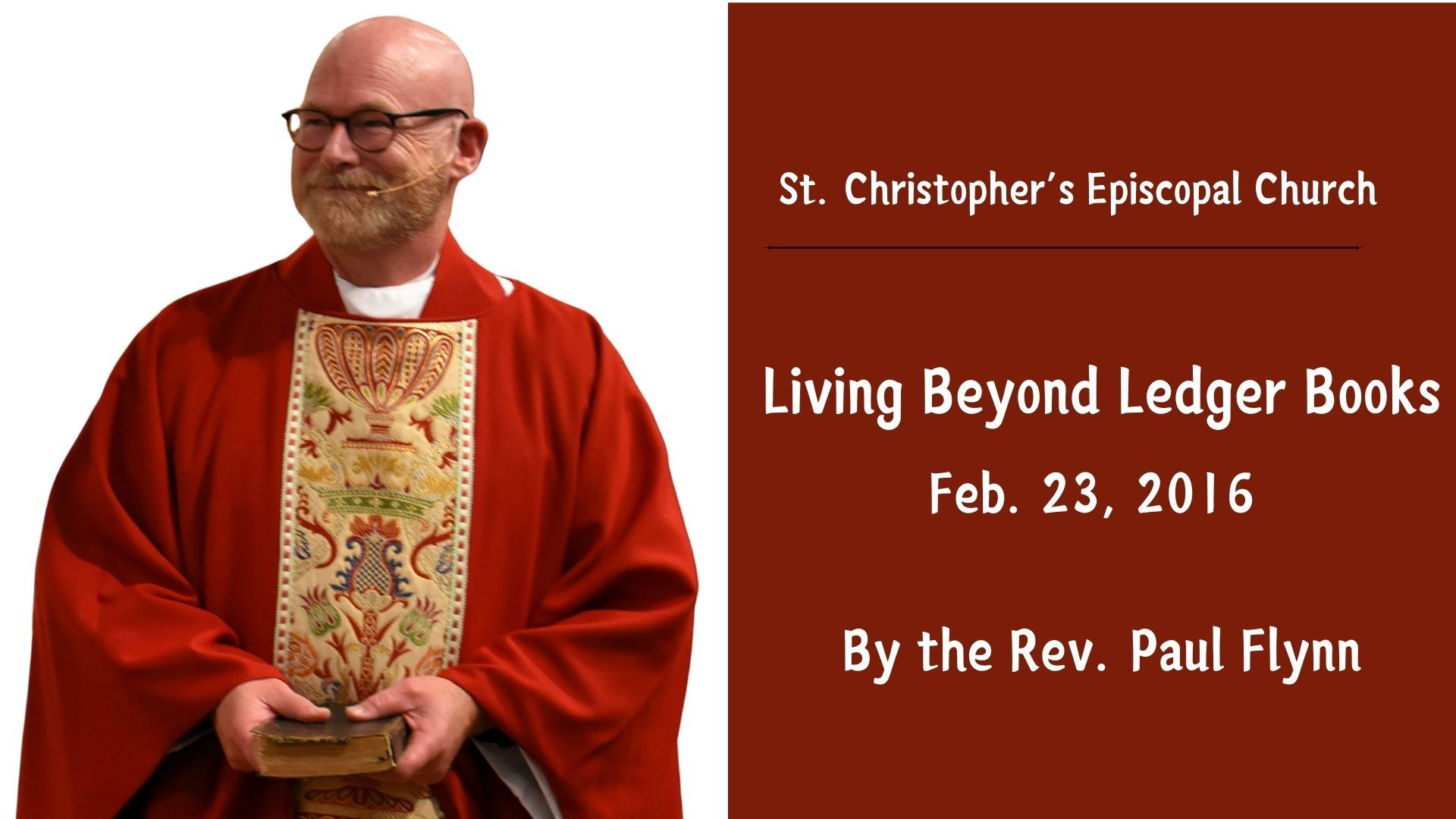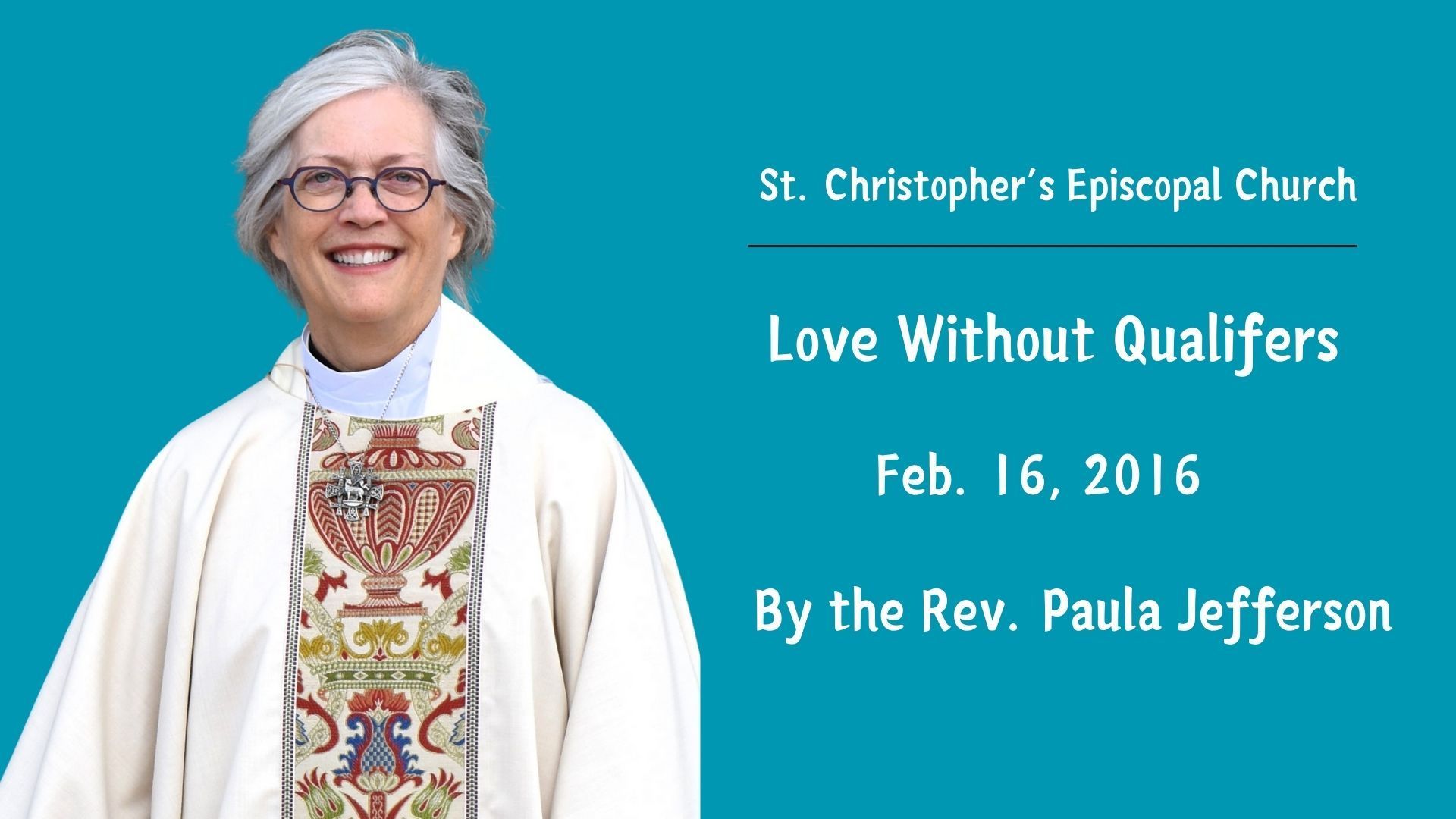There are many styles of preaching. Some preachers are pastoral. Others are teachers. Some invite participation, and some go past theology altogether and just grab our emotions.
Today, Luke took us to the John the Baptist School of Preaching.
Once John’s congregation gathered, he began with these words of welcome: "You brood of vipers! Who warned you to flee from the wrath to come?"
Apparently, John is a “Buckle up, buttercup” kind of preacher. Certainly, he’s not reporting to the vestry about Average Sunday Attendance! There is no pastoral, soft landing in John’s message. There are no shades of gray in his words.
John was called to preach one, very specific message: The Messiah is coming. Repent & Prepare to receive him!
The crowds that gathered around John came to be baptized. In those days, baptism by water was a sign of repentance…a desire to be in right relationship with Yahweh. It also restored people to full participation in the Jewish community.[1]
In other words, the folks who came to John wanted to restore their lives to the way they were.
John said, ‘that’s not enough’. If repentance for you means a ritual to get back to what was…don’t bother.
And, so the people ask, “What then…what else must we do… to truly repent?”
He replied: If you have two coats, share with anyone who has none. If you have extra food, share with those who do not. To the tax collector, do your vocation honorably. Don’t take more than the amount you are required to take.
John was saying, ‘Don’t go back to the way you used to do things. Live the golden rule—treat your neighbor as you would like to be treated’. To John, bearing this kind of good fruit is a kind of proof that repentance has truly taken root in our lives.
He had no patience for religious ritual that did not lead to personal change.
Two thousand years later, a Christian theologian named Dietrich Bonhoeffer wrote in a similar vein. He said the preaching of forgiveness without requiring repentance -- real change -- is cheap grace.
John lived in a religious culture filled with corruption, oppression, hunger, disease. Jewish customs and religious practices were often in conflict with Roman customs and authority. Life in Israel/Judah was like Gotham City without Batman and Robin.
Against that backdrop, John preached a new message, one that flipped the tables on the status quo.
His words were so different than anything the people had experienced, they began to wonder, “Is he the Messiah”? That was John’s cue to preach the crux of his message: The one who is coming is much more powerful than me. I baptize with water (they way it had always been). He will baptize with the Holy Spirit and fire.
The Messiah, he said, will separate the wheat from the chaff. The wheat will be gathered unto himself and the chaff will burn with unquenchable fire.
Like many of you, I grew up in a denomination that interpreted this metaphor to mean that Jesus would cull through humanity and set apart the good folks…the ones who matched up with our definition of good…and everyone else would be cast aside, like chaff.
It is human ego that imagines we know God’s mind; and human bias that imagines we know God’s litmus test for right and wrong, good and evil, believer or not.
This week I wondered if we have missed the real point of John’s metaphor?
In every stalk of wheat, there is both the seed and the chaff. And so it is with each of us. There is the good seed that God has planted in us. And there is the chaff, the stuff that gets in our way of being all that God has created and called us to be.
What I like about this interpretation is that there’s no need to point the finger at other people…judging who I think is heaven-bound and who is not…based upon some litmus test that Paula Jefferson has crafted over the past 63 years. Instead, I’m looking in the mirror…owning those parts of myself that God did not plant.
I recognize those parts in me. We all do.
Advent is an intentional time to prepare ourselves to receive a holy gift. Part of our preparation work is clearing the chaff that takes up space in our hearts.
Forgiveness, repentance, confession….each, in its own way, is a surrender of self and an embrace of God’s bountiful grace.
The candles of Advent represent hope, peace, joy, love, and Christ. These are the gifts God has planted in you. The very best part of God’s wheat is in you.
[1] https://www.google.com/search?q=what+is+the+meaning+of+baptism+in+judaism%3F&rlz=1C1CHBF_enUS971US971&oq=what+is+the+meaning+of+baptism+in+judaism%3F&gs_lcrp=EgZjaHJvbWUyBggAEEUYOTIHCAEQIRigATIHCAIQIRigATIHCAMQIRigATIHCAQQIRifBTIHCAUQIRifBTIHCAYQIRifBTIHCAcQIRifBTIHCAgQIRifBTIHCAkQIRifBdIBCTk5NjJqMGoxNagCCLACAQ&sourceid=chrome&ie=UTF-8


